41 what does gmo mean on food labels
What Does Non-GMO Mean? | GMO Answers The important thing to know is that Non-GMO does not mean 100% GMO-free. Labeling standards are incredibly complex and vary from organization to organization, but most non-GMO certifying organizations consider products that have less than 1% GMO ingredients to qualify as non-GMO. A product could include as much as .9% GMO ingredients and still ... Guidance: Voluntary Labeling Food from Genetically Engineered ... Because section 201(f)(1) of the FD&C Act defines “food” in relevant part as “articles used for food or drink for man or other animals,” the food derived from genetically engineered plants ...
Ask UConn Extension: What Do the Food Labels "Organic," "Natural," and ... A genetically modified organism (GMO) has genes changed using genetic engineering, rather than traditional crossbreeding. Most scientists agree that genetically modified foods are as safe for consumers as non-GMO foods. When it comes to genetic modification, or bioengineering, there are two types of labels you might see.

What does gmo mean on food labels
GMO Timeline – A History of Genetically Modified Foods 1997 – Mandatory Labels in Europe. The European Union rules in favor of mandatory labeling on all GMO food products, including animal feed. Source. 1999 – GMO Crops Dominate. Over 100 million acres worldwide are planted with genetically engineered seeds. The marketplace begins embracing GMO technology at an alarming rate. Source What Does Non GMO Mean: Checking Labels - Outstanding Foods GMO Overview According to the Non-GMO Project website, a GMO is a "plant, animal, microorganism or other organisms whose genetic makeup has been modified in a laboratory using genetic engineering or transgenic technology." Food Labels Explained - Farm Aid There are no federal regulations on labeling of food products containing genetically engineered (GE) ingredients or genetically modified organisms (GMOs); however, there are many companies that have taken the initiative to label their products as GE-Free or Non-GMO to protect consumers. Food products that use GE-Free or Non-GMO labels are ...
What does gmo mean on food labels. Non-GMO Ingredient Pet Food - NUTRO™ As the popularity of natural pet food continues to grow, more and more pet food manufacturers are putting the term “natural” on their product labels. We understand that there is often confusion about what the term actually means for pet food products like those from NUTRO™. 6 Things You Need to Know About the New GMO Food Label a gmo is a "plant, animal, microorganism or other organism whose genetic makeup has been modified in a laboratory using genetic engineering or transgenic technology," which results in combinations... Food Labels 101 -- Organic, Gmo, and Non-gmo | Amway United States What does it mean if a food is labeled GMO? The acronym GMO means Genetically Modified Organism. Any animal, plant or other organism whose genetic material has been changed in ways that don't occur in nature is considered GMO. In this technological age, some have criticized GMO items as "Frankenfoods." GMO and Organic: What Do These Labels Mean? - wellnessworkdays The label that states "Non-GMO project verified" stands for production without GMOs. Most don't know that the U.S. Department of Agriculture (USDA) provides the USDA logo on non-GMO food products, but this is not required by law. It is important to note that this label does not mean that the product is free from hundreds of other added ...
Non-GMO Project Verification | NSF Since 2008, the Non-GMO Project has verified more than 60,000 products from over 3,000 brands. Verification to the Non-GMO Project Standard represents best practices for GMO avoidance and may include testing of high-risk ingredients in product formulations. What Food Labels Really Mean - Raw, All Natural, GMO, BPA — WTF? GMO stands for Genetically Modified Organism. GMOs are created by inserting foreign genes from a plant or animal directly into a food source's genetic code. Animal studies link GMOs to various types of cancer, rheumatoid arthritis, inflammatory bowel disease, osteoporosis, atherosclerosis, allergies, and Lou Gehrig's disease. What You Need to Know about GMO Labeling - Organic Consumers Association Yes. Over the past 10+ years since GMOs have been introduced into our food system, polls have consistently shown that over 90 percent of Americans approve of GMO labeling. You can find a summary of these polls here. The only time public opinion turns against GMO labeling is when Big Ag and Big Food spend millions of dollars to saturate the ... A Guide to Green and Ethical Food Labels - The Spruce Eats GMO, or genetically modified organisms, refers to crops whose genetic makeup has been altered, usually to make them more resistant to disease, insect pests, weeds, or the rigors of shipping. Corn, soybeans, potatoes, canola, and sugar beets are among the most common GMO crops. Non GMO means that the food has not had its DNA altered.
What do GMO-free and natural labels mean? | Plate-Wise If a food is labeled as genetically modified organism (GMO), then we know that it has been "derived from organisms whose genetic material (DNA) has been modified in a way that does not occur naturally." 1 The confusing part to me is that GMO labeling can imply the superiority of non-GMO foods, and that's simply not true. Food Label Confusion: Natural vs. Clean Label vs. Non-GMO vs. Organic Non-GMO: A GMO is a genetically modified organism that doesn't occur naturally in nature or through traditional crossbreeding. GMOs have been genetically engineered in a lab. Non-GMO ultimately means that a particular crop or food item is either not produced through genetic engineering or has not been produced from GMO ingredients. What Does Non-GMO Mean? - Greener Choices What this label means "GMO" stands for Genetically Modified Organism, and refers to plants, animals or other organisms whose genetic material has been changed in ways that do not occur naturally. GMO vs. Organic | Key Differences Between Food Labels | Chomps Oct 29, 2018 · The non-GMO label means the food product wasn’t made with GMO, but this doesn't mean it's organic. Organic foods are the most heavily regulated label. Purchasing foods with the "non-GMO" or "organic" label is your safest bet when it comes to overall health and minimal toxins. Organic and non-GMO labels are highly similar.
Pros and Cons of GMO labeling | Understanding Today's Agriculture Labeling food that has GMO ingredients has become a very controversial and heated topic in todays society. Especially with more people wanting to go organic and wanting to be more careful about what they eat. GMO labeling could lead to many pros and cons so figuring out what the best choice is for both consumers and producers is very hard.
Understanding Labels: Organic, GMO, Heirloom, Hybrid In addition to this, organic foods are not processed using irradiation, industrial solvents or chemical food additives. They also never contain GMOs. They are completely free of any chemical additives. You will recognize organic foods based on the label on the packed. You will also be able to buy organic seeds in the stores.
Genetically modified foods | Food Standards Agency Genetically modified foods can be defined as organisms (i.e. plants or animals) in which the genetic material (DNA) has been altered in a way that does not occur naturally by mating and/or natural recombination. GM stands for 'genetic modification' or 'genetically modified'. It's the process of altering the genes of a living thing.
What Does the Non-GMO Label Mean? - Safer® Brand GMOs, which stands for Genetically Modified Organisms, are plants, animals, microorganisms and other ingredients that have been manipulated by scientists to assist in their production, preparation or use as a food. Scientists achieve these results by manipulating or modifying genes in ways not previously possible in nature or through crossbreeding.

If you want to support companies that are in favor of labeling GMO foods, here's a very helpful ...
Everything you need to know about GMO labeling in 2020 You may recall, in 2017 the government passed a national Genetically Modified Foods (GMO) labeling law to have one uniform standard for labeling GMOs, also referred to as BE (bioengineered). Congress passed the National Bioengineered Food Disclosure Standard in 2016.
What Does Non-GMO on a Food Label Mean? - Canadian Food Focus GMOs are proven harmless and offer growers the option to use less water, fossil fuels and fewer pesticides in helping grow more food. Food production is complex, and by slapping a 'free-from' label on a package, we're unfairly simplifying the full story of where it comes from and why it's produced in a certain way.
Non-GMO - Consumer Reports What does that "Non-GMO" food label mean? Consumer Reports rates labels and seals based on animal welfare and diet, drug use in animals, reducing pesticides, and GMOs, so you can shop with confidence.
A guide to how GMO's and bioengineered foods get labeled The United States Department of Agriculture announced standards for labeling bioengineered foods that will go into effect at the start of 2020, though companies may choose to adopt the labeling requirements earlier. For these labels, the term 'bioengineered' refers to food that people commonly call GMO's. The labeling rules aim to inject ...
What You Need to Know About GMO Labeling - Consumer Reports GMOs are plants or animals that have had their genetic makeup altered in a lab. Unlike cross-breeding, which involves the transfer of DNA between closely related plants or animals, genetic...

since we dont have food labels ..U keep reading bar codes | Organic recipes, Gmo foods, Food labels
What Do the Food Labels "Organic," "Natural," and "Non-GMO" Actually Mean? A genetically modified organism (GMO) has genes changed using genetic engineering, rather than traditional crossbreeding. Most scientists agree that genetically modified foods are as safe for consumers as non-GMO foods. When it comes to genetic modification, or bioengineering, there are two types of labels you might see.
The Difference Between GMOs & Non-GMOs Nov 20, 2021 · Non-GMO labeling steps are nearly equivalent but require lesser money for certification. The organic label means free of GMOs and pesticides. Meanwhile, the non-GMO label indicates that the food product was not created with genetically modified organisms (GMOs). But again— this does not imply that the product is organic.
GMO Foods Will Be Labeled 'Bioengineered' - Verywell Health GMO foods will be labeled "bioengineered" with a logo like this. U.S. Department of Agriculture Cuite said that the USDA had originally proposed labels that didn't have words on them. When her team conducted research on the public perception of the original designs, they found that most consumers thought the symbol meant "happy" or "natural."
Clear the Confusion About Organic and Non-GMO Food | NSF The phrase "organic is always non-GMO" is based on the idea that a producer, having followed their organic system plan, will not have purposefully used genetic engineering or GMOs. Under these guidelines, the use of genetic engineering, or genetically modified organisms (GMOs), is banned in organic products. This means an organic farmer can ...
What We Know About The USDA's New GMO Food Labels When foods containing genetically modified organisms (GMOs) were first introduced in the 90s, they were considered no different from non-genetically modified foods for purposes of safety and nutrition, according to Purdue University 's College of Agriculture. This mean they required no special disclosures or labels.
The Truth Behind GMO Labeling | GMO Answers The non-GMO label means a food product contains fewer than 1% of genetically modified ingredients. Because of this, food labeled non-GMO is not legally considered GMO-free. GMOs (genetically modified organisms) are crops that have been created to produce more desirable traits. Non-GMO labels can differ in other countries.
What does GMO mean? - The World's Healthiest Foods "GMO" stands for "Genetically Modified Organisms," and in the case of food, it usually refers to foods that have been genetically engineered for reasons unrelated to health or nourishment.
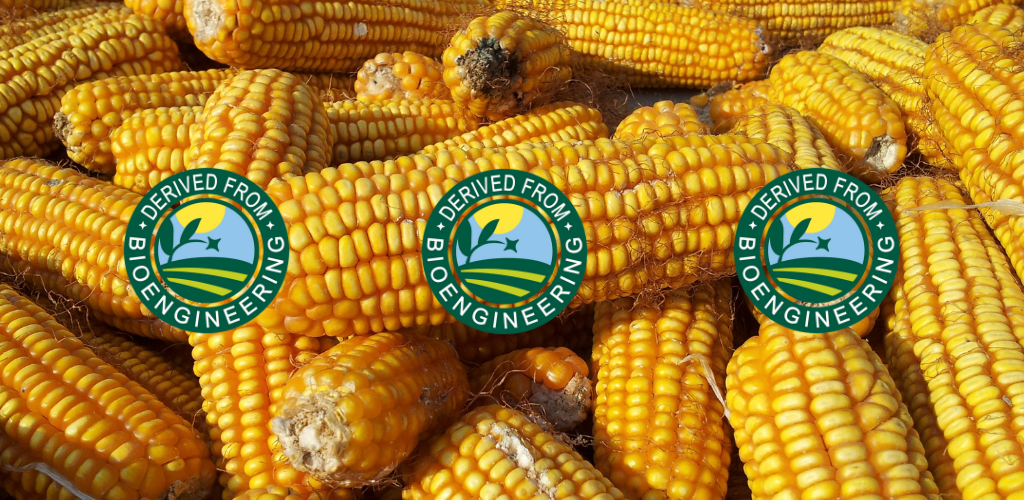
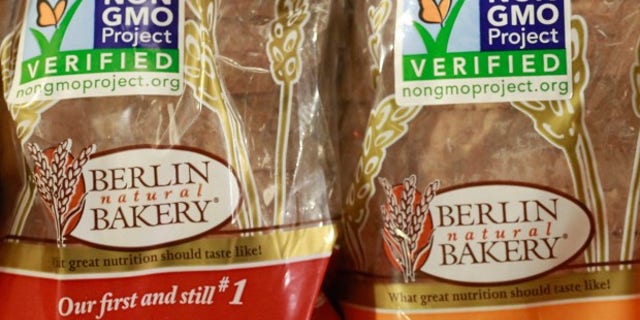
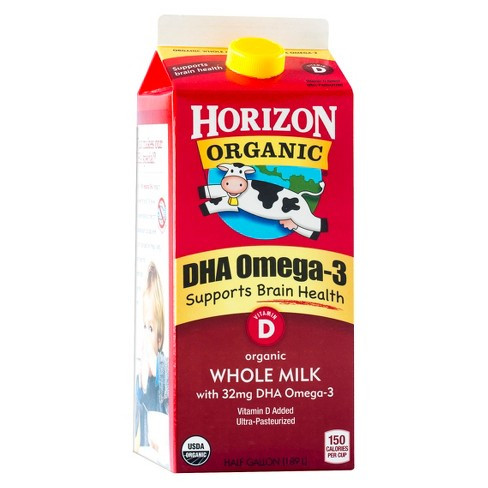


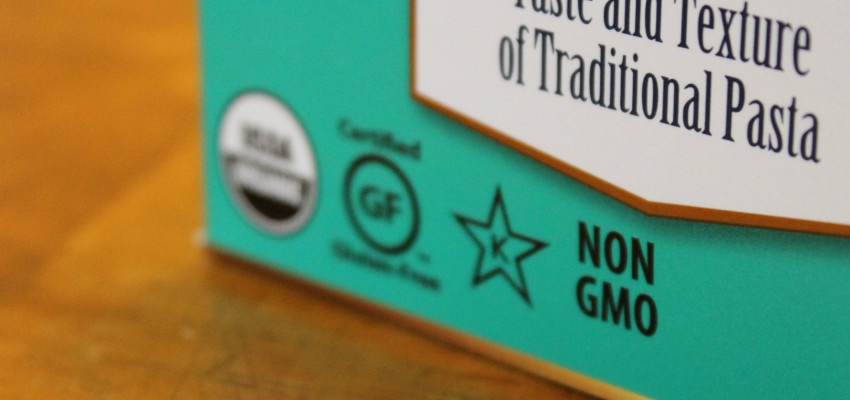

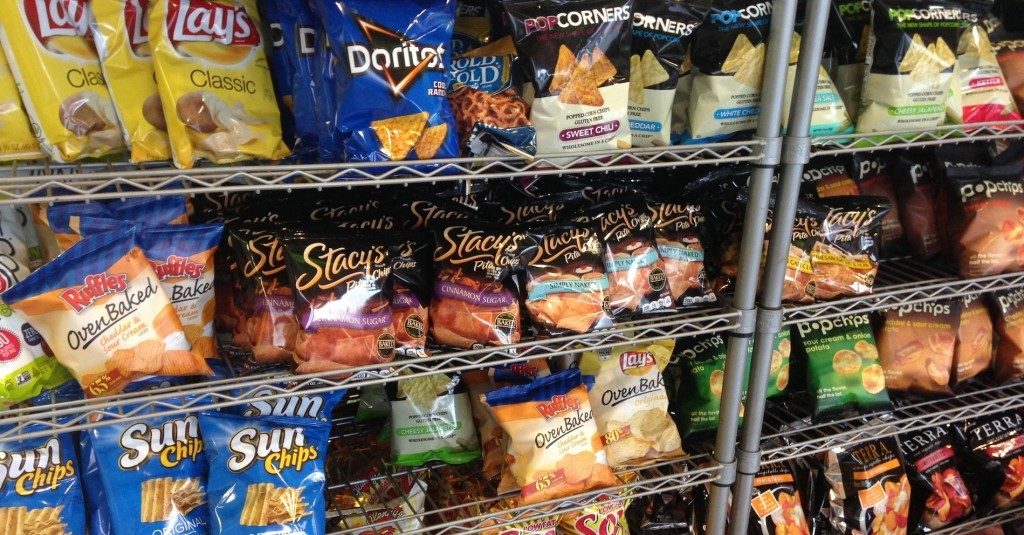
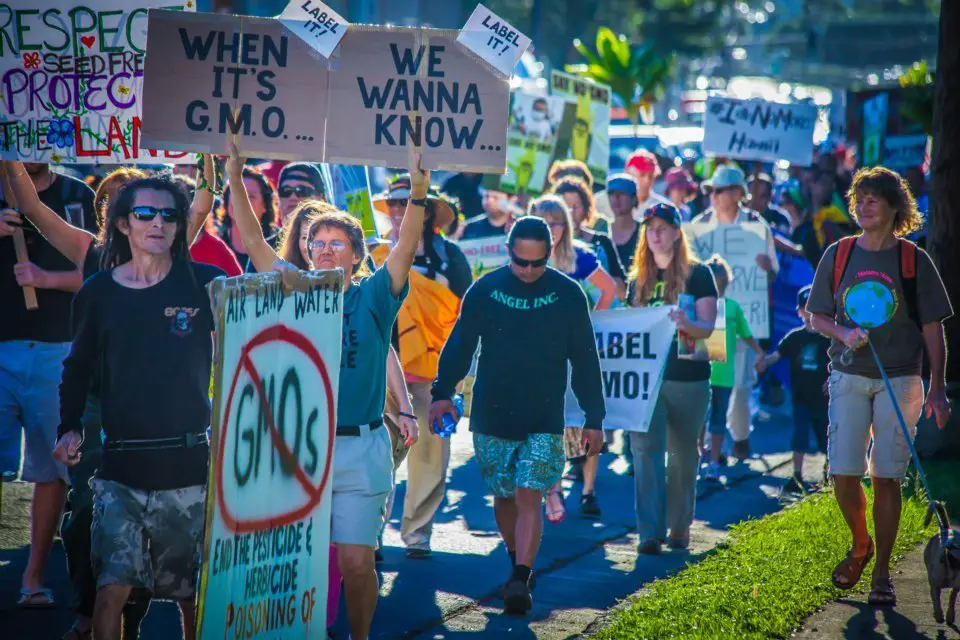
Post a Comment for "41 what does gmo mean on food labels"